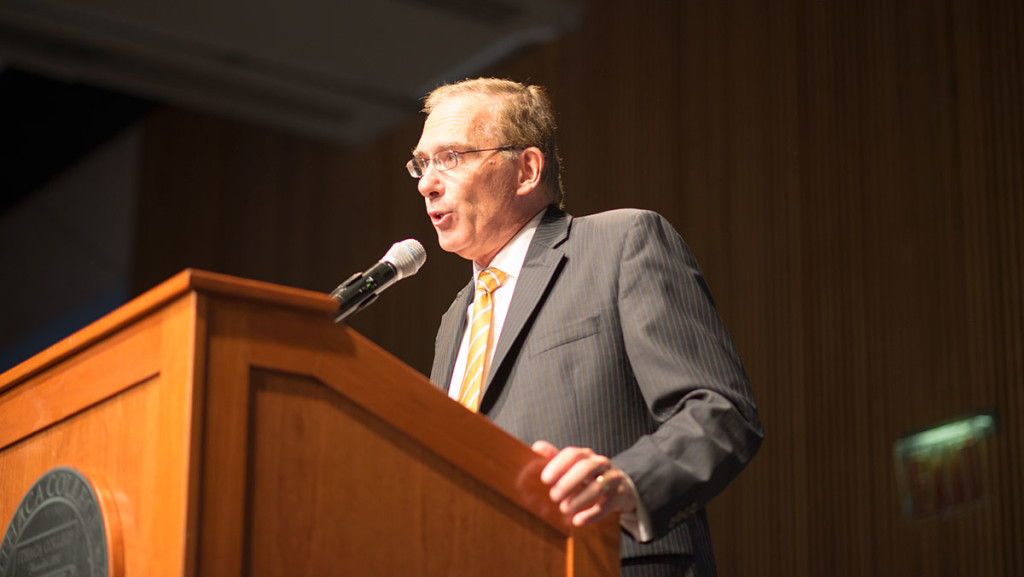Comments made by some panelists at the Blue Sky Reimagining kickoff on Oct. 8 have stirred a conversation across campus on issues of respect and inclusion. As important as that conversation is, it is also important not to eclipse an otherwise insightful discussion about creating the richest possible learning community.
“One must disconnect to reconnect; break away from society and community in order to come back knowing who you are.”
“We should encourage debates, getting away from the Google effect in which everything is targeted to one answer.”
“Failure is good.”
These are just some of the thought-provoking observations that emerged from the Reimagining kickoff. Our topic was an immersive learning community, one that offers opportunities, spaces and experiences that enable learners to focus on self-directed problem–solving activities that both deploy and extend one’s skills.
A panel facilitated by Bob Kur ’70 and composed of Chris Burch ’76, Tatiana Sy ’09 and Will VanDyke ’05 began the event by offering insights to inspire our brainstorming. They emphasized the importance of bringing intensity to the learning experience while also making time for reflection. Sy described her practice of periodically disconnecting from daily life to “check in with yourself … make sure your actions are aligning with your goals.” Burch said “the world is going to become extraordinarily empathetic … caring deeply for other people’s personal pain. We need to be a college of empathetics.”
The 200 participants in the reimagining exercise spent the following hour brainstorming, resulting in over 750 observations on the characteristics of an immersive learning community. Here are a few themes that emerged:
No boundaries of time, space or structure. The clock, the calendar and measuring learning through exams and grades were all deemed antithetical to immersive learning. “Loosen (or eliminate!) curricular structures to maximize flexibility.” “Create spaces on campus for creative learning and collaboration.”
Authenticity of work. Adopt a real-world, problem-based approach to learning that takes students off campus for internships, community service and international travel.
Authenticity of relationships. Create a true community of students, staff and faculty not only working together but also having “real conversations.” Create new roles and relationships for students to benefit from: life coach, confidante. Have faculty in residence on campus. “Ask us [students] what we think rather than asking us to rearticulate what others have said.”
The contradictions of immersive learning. Immersive learning rests on the fast pace created by full immersion, but also requires a timeless space for slow reflection. Immersive learning is self-absorbed but is also centrally focused on empathy and the ability to learn from others. Immersive learning involves getting out of one’s comfort zone (“doing something that scares you,” in one striking formulation) but also requires a nurturing environment.
Immersive learning is not the only crucial dimension of a college education; students will founder in immersive learning experiences without a prior foundation of knowledge and skills. But participants agreed that immersive learning is valuable in helping students become autonomous, lifelong learners, enhancing problem-solving skills and reducing the gap between the college experience and professional life. Immersive learning increases self-awareness and empathy when conducted in diverse teams. Immersive learning develops the ability to “have an opinion and at the same time be willing to respect and listen to other opinions and choices to make a good decision.”
I would like to thank the panelists and the 200 faculty, staff and student participants in the Blue Sky Reimagining kickoff event. The ideas generated will be made available to the community through photographs of the posters, enabling us to continue our conversation on immersive learning as well as other important dimensions of creating the most powerful possible student experience. I look forward to our further work together on these activities, expressive of our highest calling as members of a learning community.
Tom Rochon














